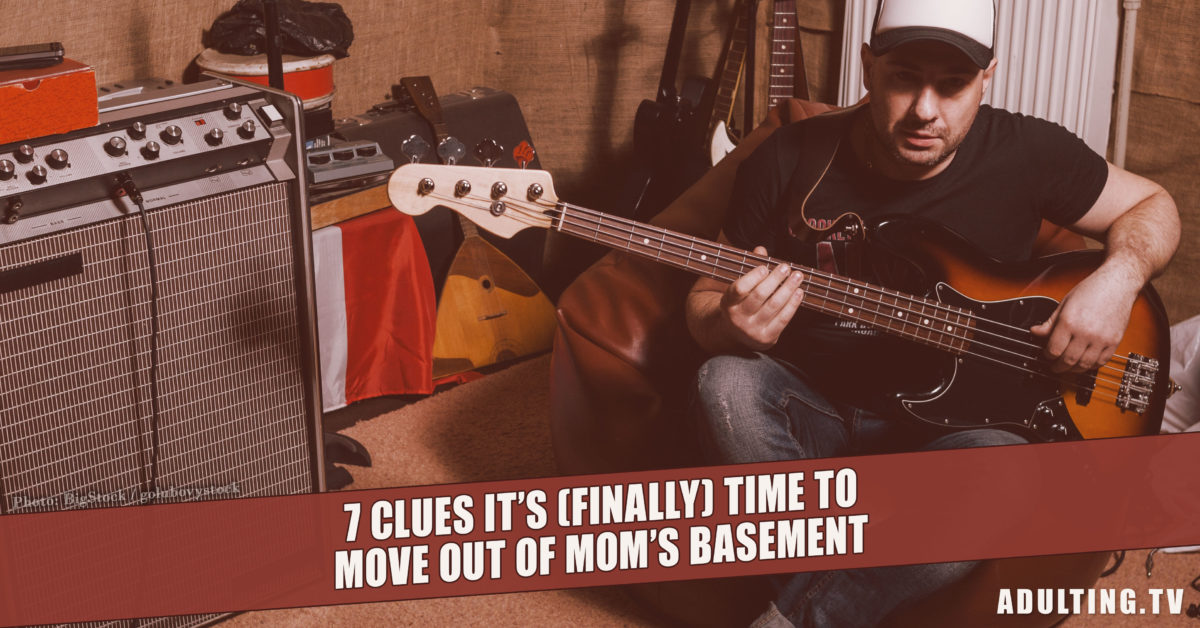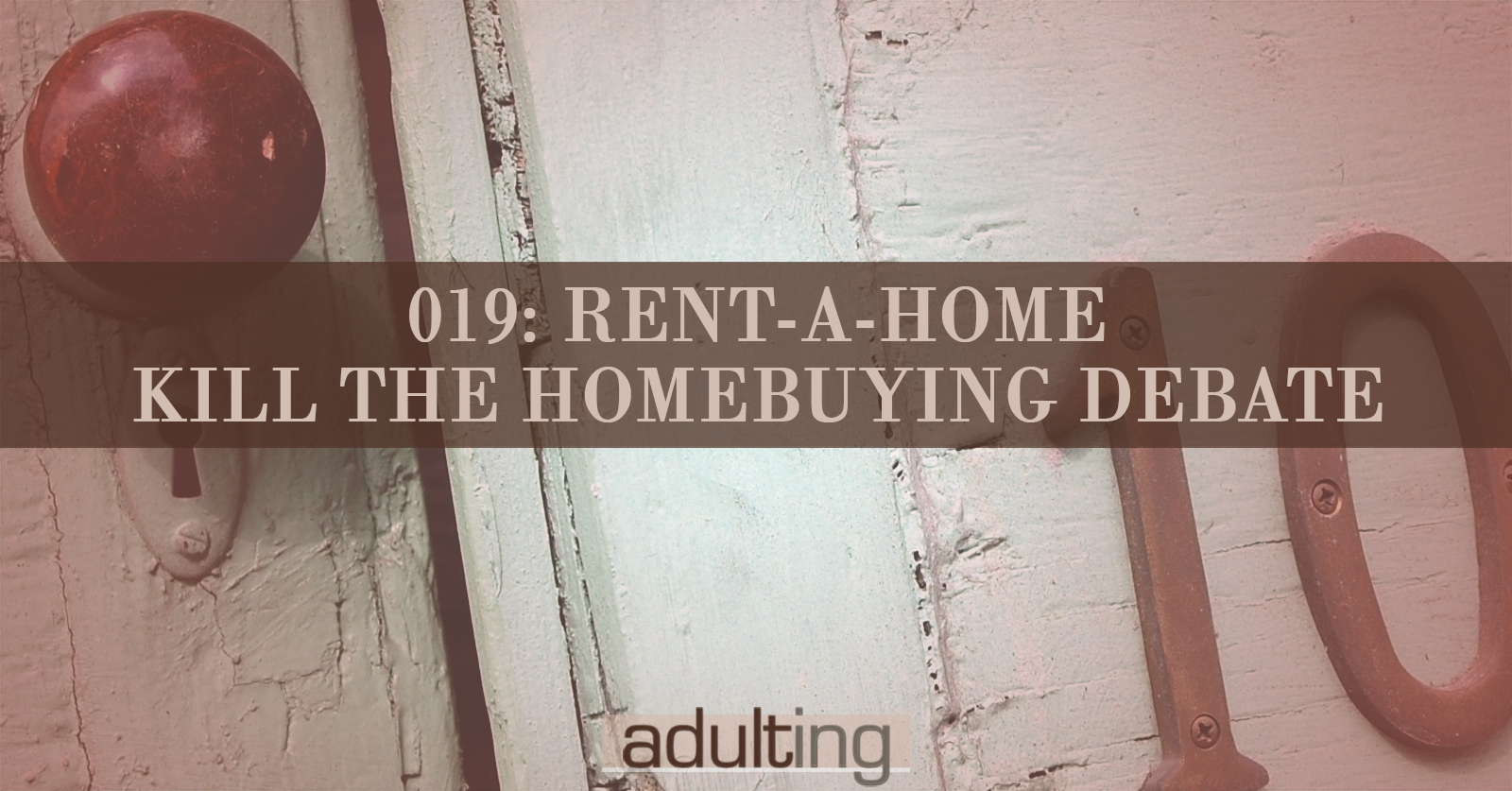One of the best ways to save money is to live with your parents. Food and shelter are provided, and you probably have internet access as well. As someone who has been going over to my mom’s to print stuff out for the last three weeks, I know the seduction of access to free services.
At some point in the next week or so, though, I need to suck it up and buy a printer cartridge. And at some point in the near future, you need to move out of your parents’ house.
While your parents might be willing to let you stick around for a little longer, it’s really not the best option for long-term success as an adult. At some point, it’s time to move out. Even if your parents are charging you rent (it’s probably below market rate) and expect help with chores, eventually you need to leave the nest.
If you aren’t sure it’s really time for you to get a place of your own, here are seven clues the (mostly) free ride is over:
1. You can afford your own place.
It might require a little sacrifice on your part, but if you can afford your own place, it’s time to move out. Even if you need a roommate to help you afford your first place, it’s time to move out when you have the money to take care of your own needs.
Research the local housing market. What are the rents? Look at estimated utilities. How much are groceries? If you are worried that you can’t afford all those costs, take your new budget for a test drive. Set aside what you’d pay for rent, utilities, and groceries in a savings account. If you can manage your budget with comfort for at least four months, you should definitely leave your parents’ house.
2. Conversations devolve into arguments.
Does it feel like every conversation you have with your parents devolves into an argument? As long as you live in someone else’s home, they feel they have the right to tell you how to do things. And they aren’t too far off. If you feel that you’re always arguing with your parents, it’s time to move out. Get that distance, and you might be surprised at how much your relationship with your parents improves.
This sign is less about your ability to manage your money outside your parents’ home and more about the emotional situation. It’s all about preserving the most important relationships in your life.
3. You have too much stuff.
Tired of trying to cram everything into a single bedroom? Even though I lived in a campus dorm three years out of four, I still ended up with more stuff than could reasonably fit in a bedroom at my parents’ house. When you have your own TV, computer, furniture (spare as it might be), and other trappings that make it hard to fit everything into your old bedroom, it’s probably time to move out.
And let’s engage in a little real talk. It’s not your parents’ job to store your shit in their basement or garage. My parents were ecstatic the day I took the last of my boxes down from the attic and carted it off to my own storage space. Don’t take over your parent’s home with your junk. Either pare down your belongings or move out. At the very least, get your own storage unit.
4. You’re ready for the next chapter.
One of the biggest clues it’s time to move out is that you’re ready for the next chapter. It’s practically impossible to feel like you’re moving on with your life — and becoming your own person — when you’re living with your parents and still (sometimes) being treated like a kid instead of an adult.
When you find yourself stagnating in your life, it’s time to move forward. Just moving out can help you get out of your life rut. It can energize and help you feel more grown up. After all, you’re taking care of business.
Besides, moving out and starting the next chapter doesn’t mean that you’re going ignore your parents. My son and I go to my parents’ for Sunday dinner every week, even though I’m pretty self-sufficient. You don’t have to leave your family behind just because you’re moving on with your life.

5. Lack of privacy.
Can’t bring bae home to chill because it’s awkward? Do you have to walk outside in the freezing cold when you take a call? Does it feel like your parents are staring at you every time you leave your room? Are you expected to come out of your room and socialize regularly? You need your own space.
As you get older, you have a chance to be you. Living in a place where you can’t just let loose cramps your style, and it doesn’t help you develop into a fully functioning adult. We all need those private moments.
6. The rules are getting to you.
You want to be treated like an adult, but you feel like all the rules make you feel like a kid? It’s time to move out. You’re living in someone else’s house, and that means they make the rules.
After college, it’s hard to come back and worry about how late you stay out and what you’re doing with “me” time. Tired of living by their rules? Figure out what it takes to move and get your own place. Then you make the rules.
7. Your parents are dropping hints.
It’s not always about you and your needs and wants.
At some point, your parents are likely to want you to move out. My mom considered it a mark of success when we could get out of the house and mostly “make it” on our own. If your parents are dropping heavy hints, like sending you Craig’s List ads for rentals, it’s time to move out. The biggest clue, though, is when your parents start charging you rent. If you’re paying rent to live in your childhood bedroom, you’re not adulting.
Take the next step.
While it can be scary to move out and make it on your own, it’s something you can handle. Start by making a reasonable budget and seeing what you can afford. Save up a little so that you are ready to make the move. Let your parents know your plans and see if they can offer some support.
And, once you’re out, keep up the relationship with your parents. They have helped you for a couple decades. Maintain those family ties, and be ready to help them when they need it.


![[B021] Buying a Home for First-Timers ft. Mindy Jensen, Bigger Pockets](https://adulting.tv/wp-content/uploads/2017/04/buying-a-home-1200x628.jpg)
![[A054] Move Yo Butt: Make Moving Day Easy](https://adulting.tv/wp-content/uploads/2017/01/a054-1200x628.jpg)

![[B010] How to Set Up Your First Kitchen ft. Erin Chase, $5 Dinners](https://adulting.tv/wp-content/uploads/2016/11/your-first-kitchen-regular-1200x630.jpg)







